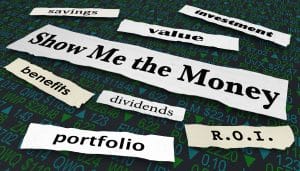
Chris Kuehl
Managing Director • Armada
There are several trends that affect the credit manager. As result there are few economic indicators that do not matter in one form or another. Lately there has been a little something for the optimist and the pessimist. Why are there no really clear signals? Are we headed for a recession or not? Will inflation ease or will it get worse? The latest data from the Purchasing Managers’ Index is not great – two straight months in contraction with a current reading of 46.3. On the other hand, the rate of durable goods orders has risen to levels not seen since last year and factory orders are up higher than any time in the last year. Retail sales are up 0.3% over last month and 1.6% above May of last year. These are actually pretty healthy numbers. The recession was predicted to start towards the end of last year but there was growth of 2.6% in Q3 and 2.9% in Q4. The recession didn’t start in Q1 of this year either (up 2.0% in the third iteration). Q2 is expected to be close to 2.5% in the final analysis.
The perplexing part is that the Fed has been doing what it can to address inflation with a 500 basis point rate hike in a year and a half. That should be enough to trigger at least a downturn but thus far it hasn’t and inflation has remained stubbornly high. There is a theory making the rounds among economists that might partially explain this. The Fed (and other central banks) operate under the assumption that a “neutral” interest rate is 1.0%. That is the rate that is neither stimulating nor does it slow the economy. If the neutral rate is 1.0% the Fed has been pushing towards slowdown since last year but there is a sense that the neutral rate has changed and that it really should be seen as 2.0%. If that is the case the Fed has only been pushing hard on inflation since February.
There are several theories as to why the neutral rate should have changed but at the top of the list have been two factors – worker shortage and excess cash in the system. The fact that so many companies are struggling to find workers means that layoffs have been relatively rare. It also means that people are confident enough about their job security to keep spending and that has supported retail. That same shortage has meant that wage hikes have been outpacing overall inflation for several months now. The rate of inflation has been around 4.5% as measured by Personal Consumption Expenditure but wages have been rising by almost 7.0% in many sectors.
In addition to the cash on hand from people getting paid better and hanging on to their jobs there is the immense holdover in savings from the 2020 pandemic spend. There is still an estimated $3.5 trillion in excess savings in the system and the majority of this is in the hands of the upper 25% of income earners. The majority of that extra cash has found its way into the so-called shadow banking system (non-bank financial intermediaries). These funds along with entities like insurance companies are still distributing money to the business community and that essentially undermines the Fed’s effort to slow the economy through higher interest rates. On the one hand this cash has allowed expanded capital investment to continue at record levels but it also slows the process of dampening inflation and ensures the Fed will keep hiking rates. If the neutral rate is determined to be closer to 2.0% than 1.0% the potential is there for a Fed Funds at between 5.5% and 6.0%. That would take rates to highs not seen since 2000 when it was above 6.0% for several months. This would still be far less than the record highs in the 1980s (above 15%).
Recent Posts
- Stability in Uncertain Times: Insights on Small Business Performance and Market Trends March 26, 2025
- Economic Reconnaissance | Now Comes the Hard Part February 3, 2025
- How Can the CMI be Used for Performance Insights? January 6, 2025
- Economic Reconnaissance | Economic Growth During the Next Presidency December 3, 2024
- How Credit Managers Can Step into Executive Leadership November 13, 2024
- New California law extends consumer debt protections to small businesses October 15, 2024









